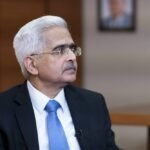In a dramatic turn of events, Delhi Chief Minister Arvind Kejriwal finds himself embroiled in a legal battle, facing charges of money laundering in connection with the alleged liquor policy scam. Despite having been granted bail earlier, Kejriwal was arrested by the Enforcement Directorate (ED), sending shockwaves across the political landscape. Let’s delve into the chronology of events leading to this unexpected development.
The Initial Allegations
The saga began with the ED filing criminal complaints against Kejriwal, accusing him of non-compliance with summons related to the investigation into the liquor policy scam. The agency alleged that Kejriwal, along with other individuals, conspired to manipulate the excise policy to benefit certain private companies, leading to substantial profits for wholesalers.
Legal Maneuvering
Kejriwal, in response to the summons, challenged their legality, claiming they were illegal. However, he expressed willingness to cooperate with the investigation via videoconferencing after March 12. Despite his assurances, the ED persisted in pursuing him, escalating the legal standoff.
Courtroom Drama
The legal battle shifted to the Delhi High Court, where Kejriwal sought interim protection from coercive action by the ED. However, the court, while granting liberty to the ED to respond to Kejriwal’s plea, refused to pass orders for interim protection at this stage. This decision set the stage for further legal wrangling.
Arrest and Bail
Despite having obtained bail earlier in a separate court appearance, Kejriwal’s arrest by the ED stunned many. The agency asserted that there was a necessity to call him for interrogation, leading to his arrest. However, questions arose regarding the timing and necessity of the arrest, especially in the midst of an impending election season. Notably, Kejriwal had appeared before the Additional Chief Metropolitan Magistrate (ACMM) court the previous week and was granted bail, subject to furnishing a bail bond of Rs 15,000 and a surety of like amount. The matter has been listed for hearing on April 1st.
Hundreds of AAP leaders and workers hit the streets, raising slogans like ‘Arvind tum sangharsh karo, hum tumhare sath hain’ (Arvind, continue your struggle, we are with you) and ‘tyranny won’t last’, protesting against the BJP over Kejriwal’s arrest. AAP ministers Atishi, Saurabh Bharadwaj, and others were detained during the protest.
Legal Arguments
During the court proceedings, arguments flew from both sides. Kejriwal’s counsel contended that the ED’s actions were politically motivated, aimed at disrupting the electoral process. On the other hand, the ED defended its actions, stating the necessity of the arrest for interrogation purposes.
Constitutional Challenge
Amidst the legal skirmish, Kejriwal’s plea also challenged the constitutionality of Section 2(s) of the Prevention of Money Laundering Act (PMLA), which includes political parties within its ambit. This added a layer of complexity to the legal battle, raising fundamental questions about the interpretation and application of the law.
The arrest of Arvind Kejriwal in the midst of legal proceedings and despite having obtained bail underscores the complexities of India’s legal system. The case highlights the interplay between politics and law enforcement, raising pertinent questions about due process, constitutional rights, and the autonomy of investigative agencies. As the legal battle unfolds, it remains to be seen how the matter will be adjudicated and its implications on the political landscape of Delhi.
Source – ED Times




